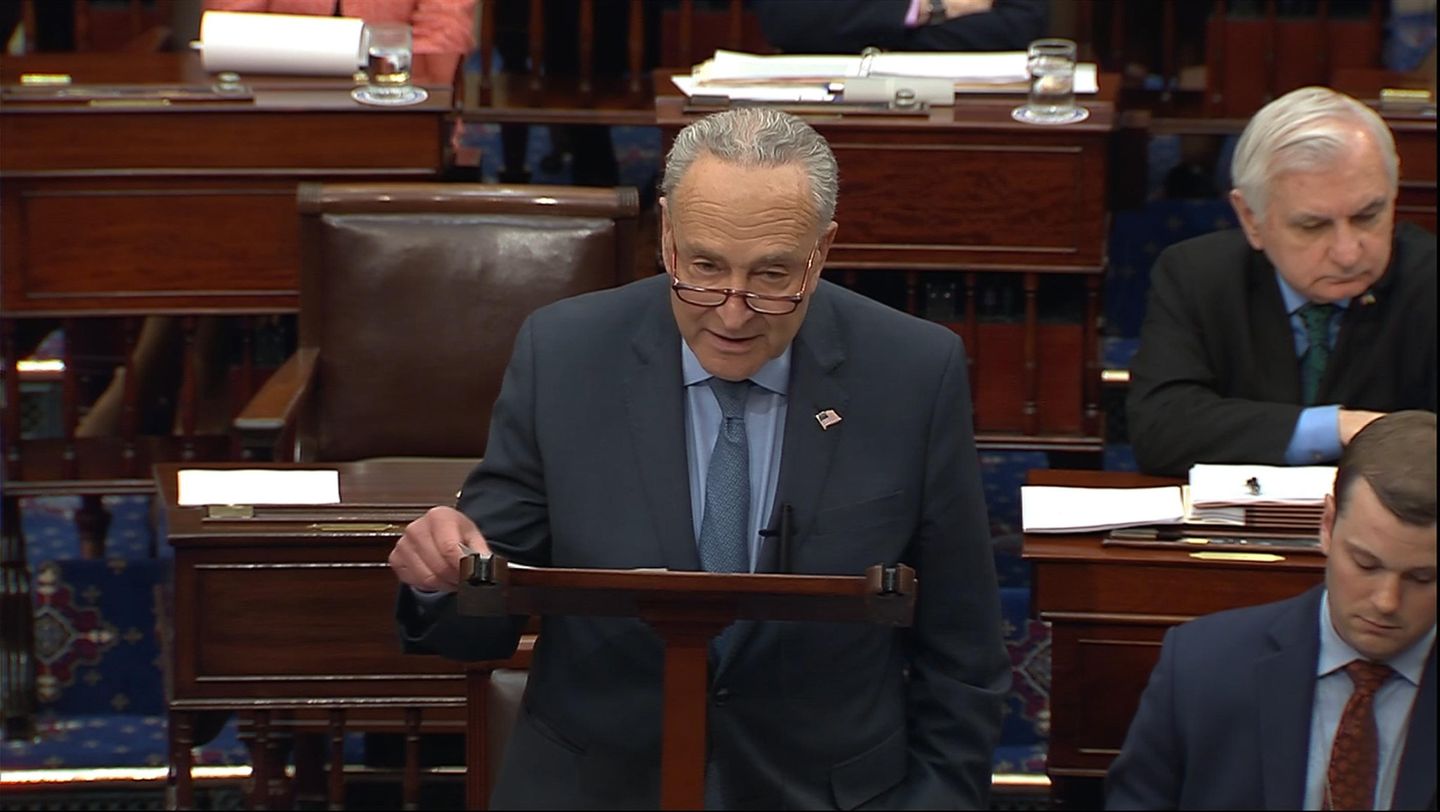The Senate’s decision to dismiss the articles of impeachment against Homeland Security Secretary Alejandro Mayorkas on Wednesday was a historic one, as it marked the first time in the chamber’s history that someone was exonerated without a trial or the review of evidence. This move by the Senate has raised questions about the efficacy of the impeachment process and the power of the legislative branch to hold government officials accountable for their actions. Some lawmakers have argued that the dismissal of the articles of impeachment sets a dangerous precedent and undermines the checks and balances system outlined in the Constitution.
The decision to dismiss the articles of impeachment against Mayorkas comes at a time when the Department of Homeland Security is facing scrutiny for its handling of the border crisis and other issues. Mayorkas has been at the center of controversy for his handling of immigration policies and border security, with some accusing him of failing to enforce immigration laws and properly manage the situation at the southern border. Despite these criticisms, the Senate’s decision to dismiss the articles of impeachment suggests that there may not have been enough evidence to warrant a trial or further investigation into Mayorkas’ actions.
The Senate’s decision to dismiss the articles of impeachment against Mayorkas has sparked debate among lawmakers and political analysts about the role of impeachment in holding government officials accountable. Some argue that impeachment should be reserved for cases of serious misconduct or abuse of power, while others believe that it is an important tool for ensuring transparency and accountability in government. The dismissal of the articles of impeachment against Mayorkas raises questions about the threshold for impeachment and whether the process is being used appropriately in cases involving high-ranking government officials.
Despite the Senate’s decision to dismiss the articles of impeachment against Mayorkas, the controversy surrounding his actions and the Department of Homeland Security is likely to continue. Critics of Mayorkas and the Biden administration may use this decision as evidence of a lack of accountability within the government, while supporters of the Secretary may see it as a vindication of his actions. The dismissal of the articles of impeachment against Mayorkas may have long-term implications for the relationship between the legislative and executive branches, as well as for future impeachment proceedings involving government officials.
In conclusion, the Senate’s decision to dismiss the articles of impeachment against Homeland Security Secretary Alejandro Mayorkas without a trial or review of evidence marks a historic moment in the chamber’s history. This decision has sparked debate about the efficacy of the impeachment process and the role of Congress in holding government officials accountable for their actions. The controversy surrounding Mayorkas and the Department of Homeland Security is likely to continue, with the dismissal of the articles of impeachment raising questions about the threshold for impeachment and the use of this process in cases involving high-ranking government officials.









